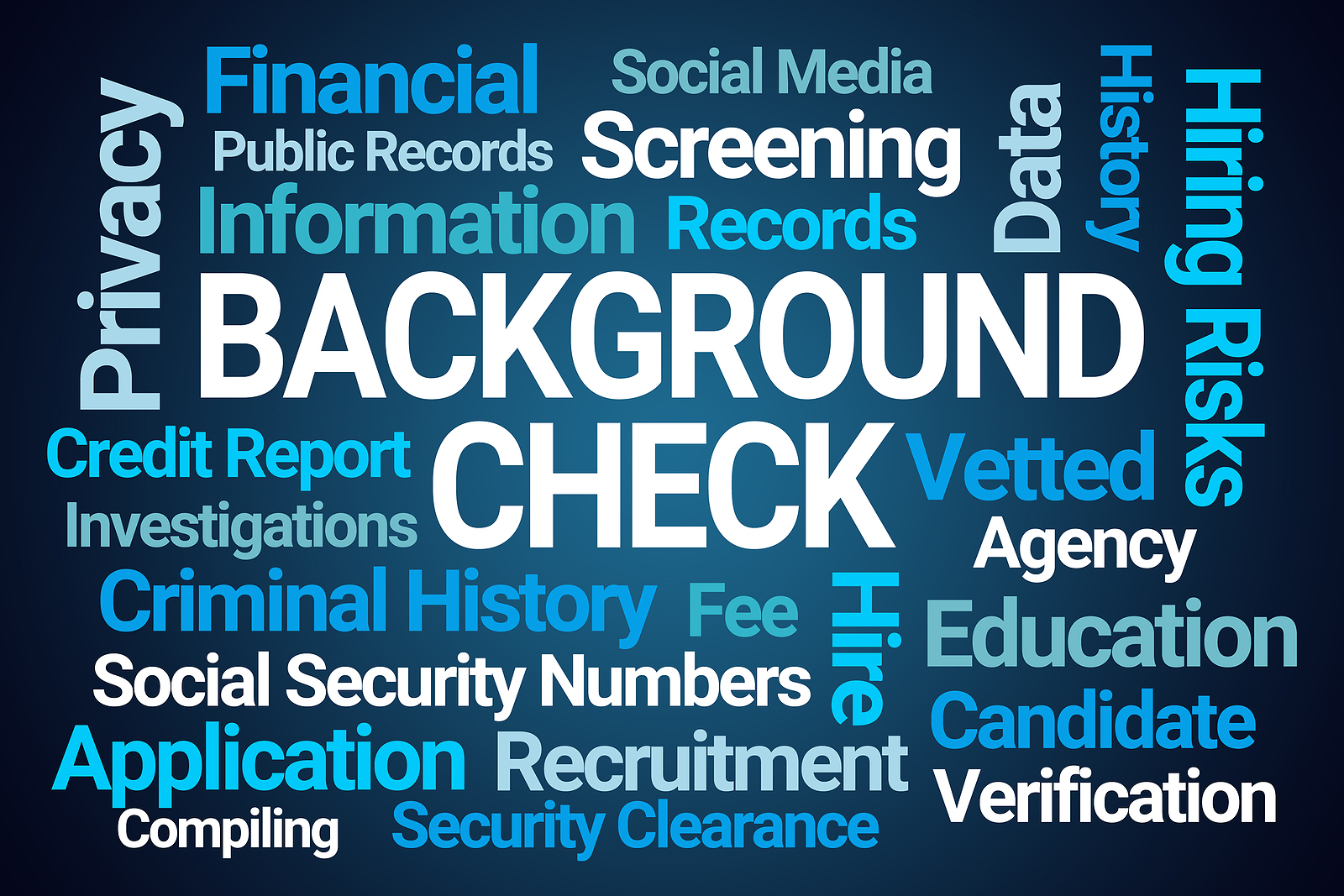When an employer, lender, or landlord reviews applications for new hires, bank loans, or housing, more often than not they will conduct a thorough background check. Background checks are generally used to verify your identity, but they also reveal other vital information about your past, including criminal history, work history, education, past evictions or foreclosures, and yes, even your credit report.
While background checks may seem rather invasive, it does help employers and lenders assess whether you are a responsible individual and worth the risk. This is especially the case if a company is hiring a candidate that is required to work with finances or handle money.
A handful of states have passed laws prohibiting or restricting the use of credit reports to make employment decisions. States that have passed background check legislation are California, Colorado, Connecticut, Hawaii, Illinois, Maryland, Nevada, Oregon, Vermont, and Washington. The National Conference of State Legislators (NCSL) confirms that currently there are more than twenty other states that are considering similar legislation that would limit employers from using credit information during the hiring process.
The Fair Credit Report Act (FCRA), which is a federal agency, does allow employers to run credit checks in potential job seekers. Thankfully, state laws are more protective and will override federal laws, thus lending an extra layer of protection depending on where you live. Here, we will discuss California background check laws and if they will protect you from being unfairly discriminated against because of a past bankruptcy.
California Background Checks & Bankruptcies
Credit reports show everything from your credit score, past foreclosures, past-due loans, and any past bankruptcy filings. Due to the recent economic downturn, many local and state legislators have been reconsidering whether or not credit reports should have any bearing on if someone gets hired or not.
The debate that poor or bad credit scores could eliminate viable candidates, that are simply trying to get back on their feet and rectify past debts, is a valid argument. It could lead to a vicious cycle of discrimination where valued workers could be further impaired from getting ahead, even if they have the talent and experience.
The guidelines for how far an employer can delve into your financial history and credit report can vary from state to state. If you live in the state of California, a past bankruptcy may turn up on your background check, but it depends on two major factors: The type of bankruptcy and type of background check. Let’s dive into the details surrounding California background checks and clear up some common misnomers.
How Far Back Can a Bankruptcy Background Check Go in California?
Keep in mind that bankruptcy is public record, and will appear on your credit report anywhere from 7-10 years from the filing date before it ‘falls off’ or is deleted. This again depends on what chapter of bankruptcy you filed.
- Chapter 7 bankruptcy discharge will remain on your file for 10 years
- Chapter 13 bankruptcy will remain on your file for 7 years
However, as a general rule of thumb, California adheres to the FCRA’s seven-year law as the threshold for reporting negative information about an individual. But as with most things, there are exceptions. The salary of the job you’re applying for plays a factor as well. If you are applying for a position in the state of California that has you earning over $125,000, your employer may be permitted to conduct a background check that stretches back the full 10 years.
Common Types of Background Checks
- Employment Background Check – These are generally used to gage past behavior, reliability, and quality of character. They may contact past employers to speak to them about how you behaved while you were employed there and even ask about work ethic. An employment background check will not reveal whether or not you have a bankruptcy in your past.
- Credit Background Check – Bankruptcies are a matter of public record. Credit background checks will show a past bankruptcy for the maximum amount of time it lingers on your report, which depends on the type of bankruptcy and if the debt was paid. This is mainly used by lenders and landlords to determine whether you are financially responsible to take on a new loan or pay your rent on time. Again, an employer may be more inclined to conduct a credit background check if the position you are being hired for deals with finances or handling money.
- Criminal Background Check – Criminal background checks are right up there with employment background checks. Neither should contain any information about past bankruptcy proceedings. This is designed to determine if you pose a threat to the business or have been convicted of any violent crimes or fraud.
How Can Bankruptcy Records Be Accessed?
Unless sealed, a debtor’s bankruptcy documents can be accessed by way of the Clerk’s Office during normal business hours or by an online portal called the PACER system. It isn’t a simple matter though. In order to obtain a debtor’s bankruptcy documents, an employer must have access to your bankruptcy case number and would need to go to a federal courthouse in the same district the bankruptcy was filed to access that information.
What Should I Do If I’m a Job Applicant Who Has Declared Bankruptcy?
Job applicants who have declared bankruptcy have options moving forward. If you are applying for a job in finance or banking, this may be especially important to you. In this instance, honesty is the best policy. Offer an explanation and be forthcoming. Truth be told, most employers aren’t concerned if you have a bankruptcy in your past and are more concerned about provable work history and that you haven’t committed any violent crimes.
Chances are that if you explain the hardship that led you to file for bankruptcy, whether it be medical issues or divorce, most employers will be sympathetic. Filing for bankruptcy simply shows that you needed help paying off past debts and are in the process of restructuring your finances. Arguably, this shows that you are responsible for your actions. And if you are qualified for the job, you shouldn’t be penalized for past financial hardships.
HAVE QUESTIONS ABOUT CALIFORNIA BANKRUPTCY? CONTACT OAKTREE LAW!
OakTree Law is open for business during the COVID-19 crisis. If you’re in need of an experienced Los Angeles bankruptcy attorney that can help you secure employment and finish paying down debts, reach out to OakTree Law now. We’ll help you properly restructure your finances so you can get back on your feet. Serving clients in Los Angeles, Orange County, and throughout Southern California, OakTree is here for you. Call us at 888-219-0654 for a free phone consultation today!







